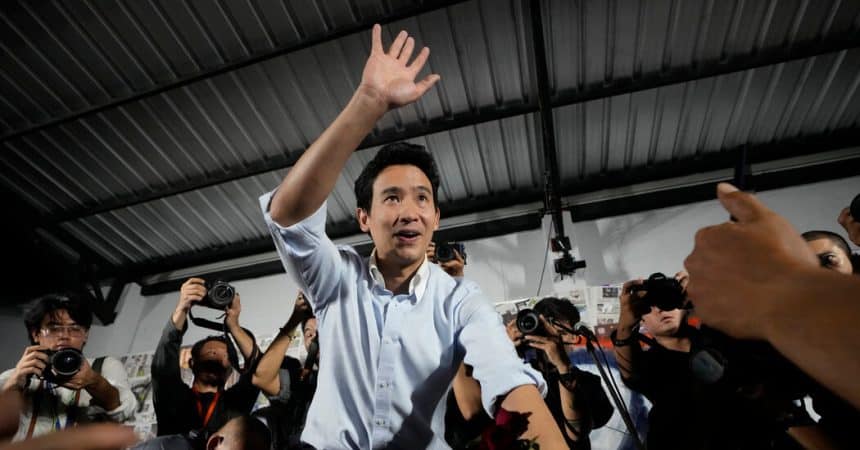On the surface, Thailand appears to be stuck in a never-ending cycle.
Elections are held in which voters voice increasingly clear demands for change, only for those to be denied by the royalist old guard that has dominated my country for generations. Each of the past several elections, going back to 2005, have resulted in the winning party either being denied its right to form a government, overthrown in a military coup or otherwise removed from office.
So when Thailand’s Constitutional Court last week ordered the dissolution of the country’s most popular political party — the pro-reform Move Forward Party, which won last year’s national election on a platform of curbing royal prerogatives — it seemed like déjà vu, the latest chapter in a normalized process of political stagnation.
But in reality what we are seeing is the beginning of the end for the Thai royalty’s once-commanding hold over its subjects, which could mean great change ahead for a traditional kingdom at the center of Southeast Asia.
The court decision is not a sign of the strength of the conservative establishment, but of its weakness; a last-gasp attempt by the old guard to cling to an outdated status quo despite demands for change by millions of politically literate young Thais.
The Move Forward Party had called for several reforms in the run-up to last year’s vote, including a reduction in the entrenched political power of the Thai military, the ruling establishment’s frequent enabler that has ousted elected governments in several coups over the years. But the party’s main objective was the reform of Thailand’s lèse-majesté laws. Those laws, enshrined as Article 112 of the country’s criminal code, make it a crime to defame certain members of the royal family and are designed to protect the throne’s prerogatives. Many Thais have come to view them as an anachronistic impediment to Thailand’s development as a modern, democratic nation — and a major factor behind its persistent political instability.
Move Forward won the most seats of any party in the May 2023 election, posing a dire threat to the crown. The conservative establishment, which is centered around the throne and the army, maneuvered to form a government that froze Move Forward out of power. Last week’s court decision was the final blow: Move Forward, which had been accused of violating the constitution with its call for lèse-majesté reform, was dissolved, and key members, including its leader, Pita Limjaroenrat, were banned from politics for 10 years. Thailand is essentially back where it started in 2020, when the same court dissolved Move Forward’s predecessor, the Future Forward Party, after it also had achieved a strong election showing on reform demands. Thousands of Thais took to the streets of Bangkok to protest that decision.
The New York Times










